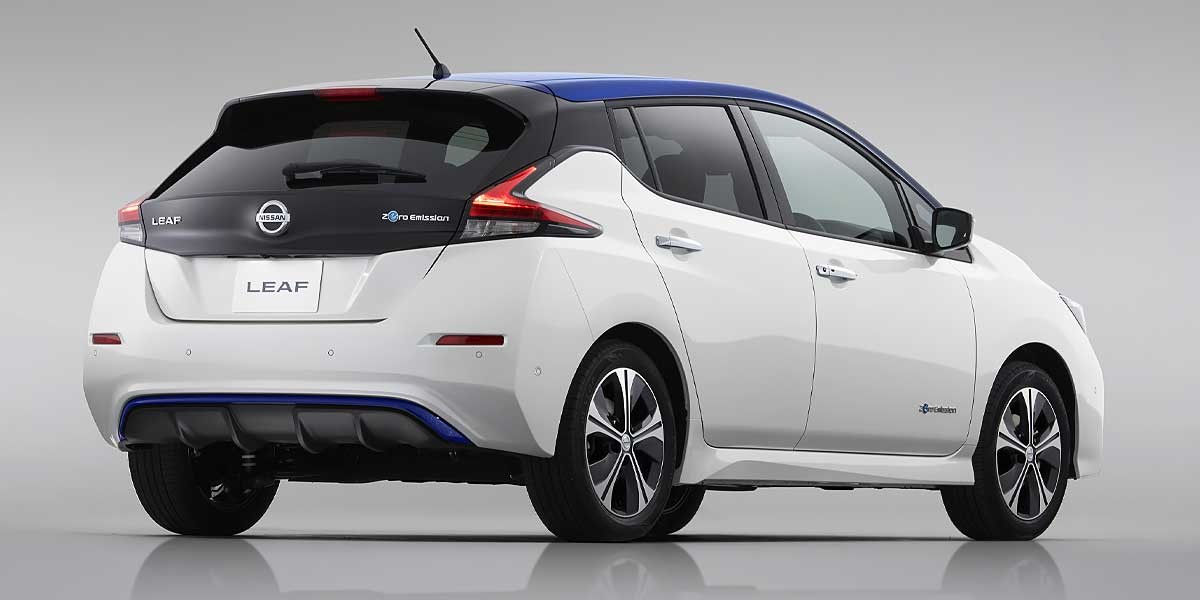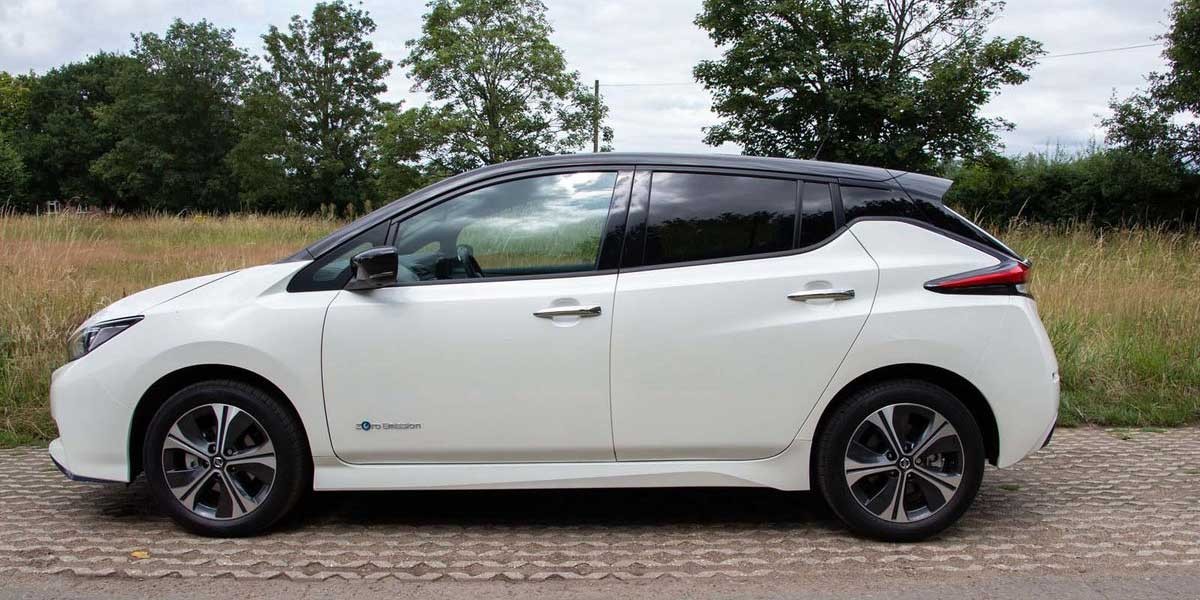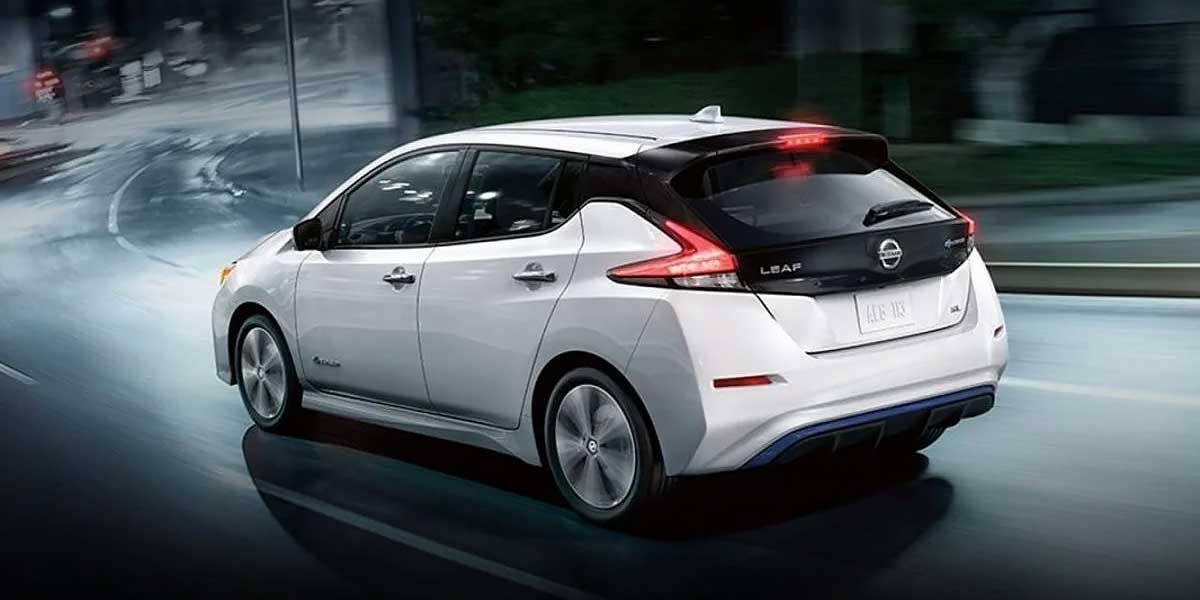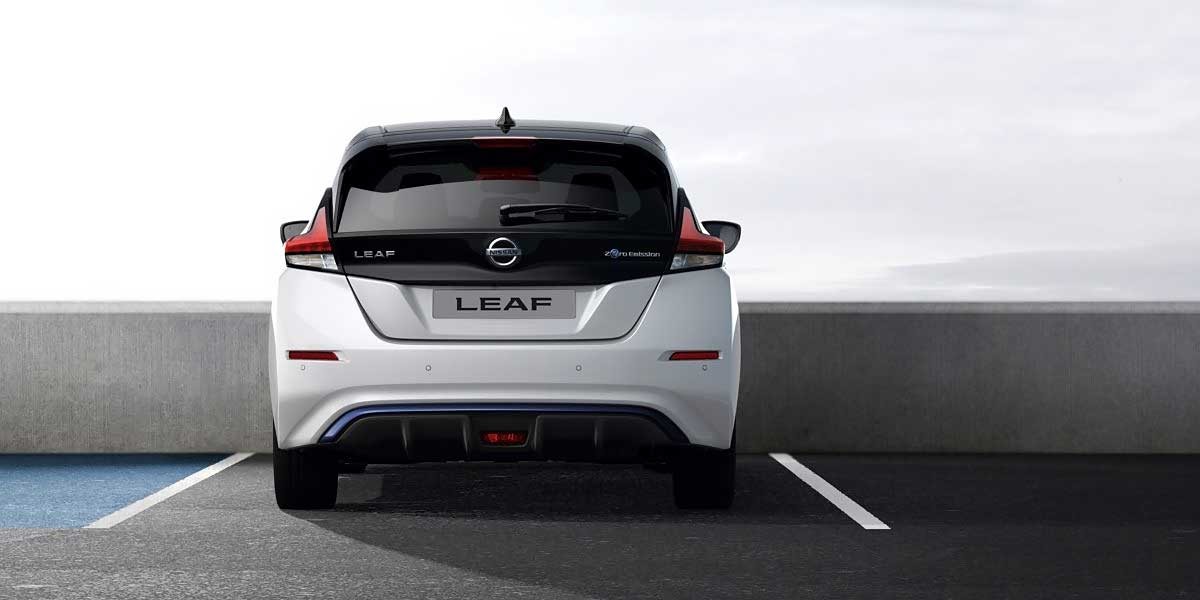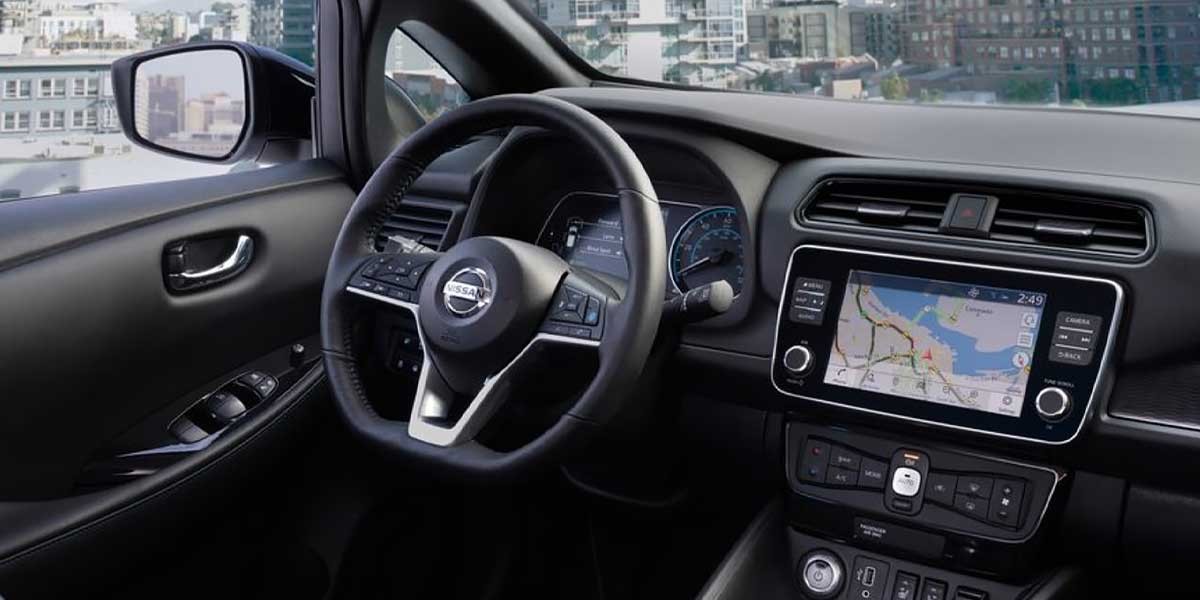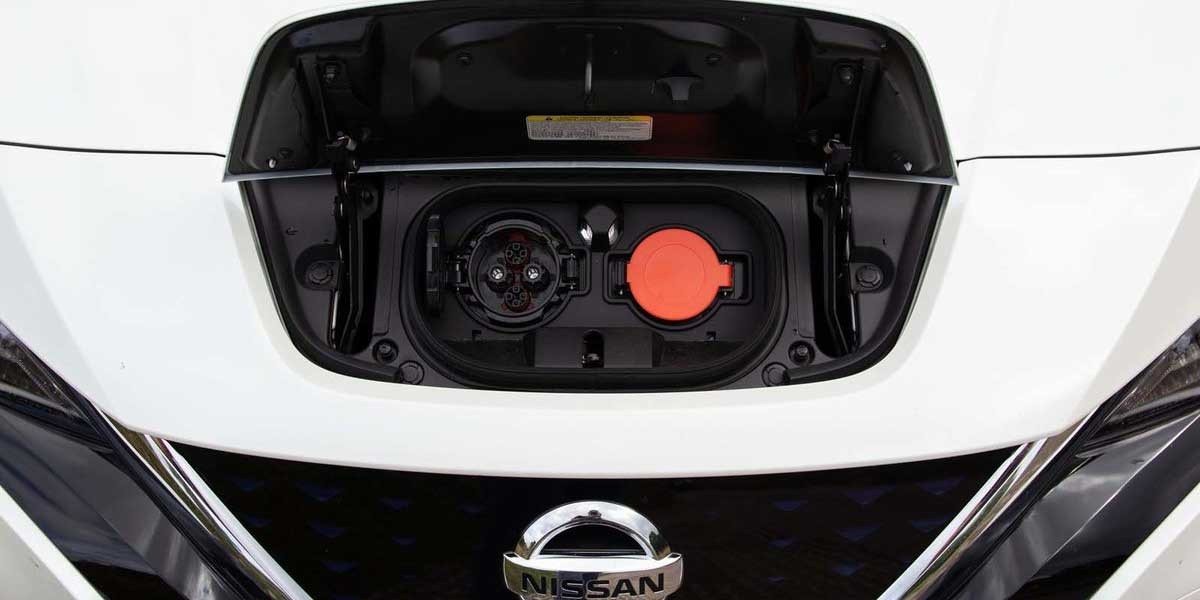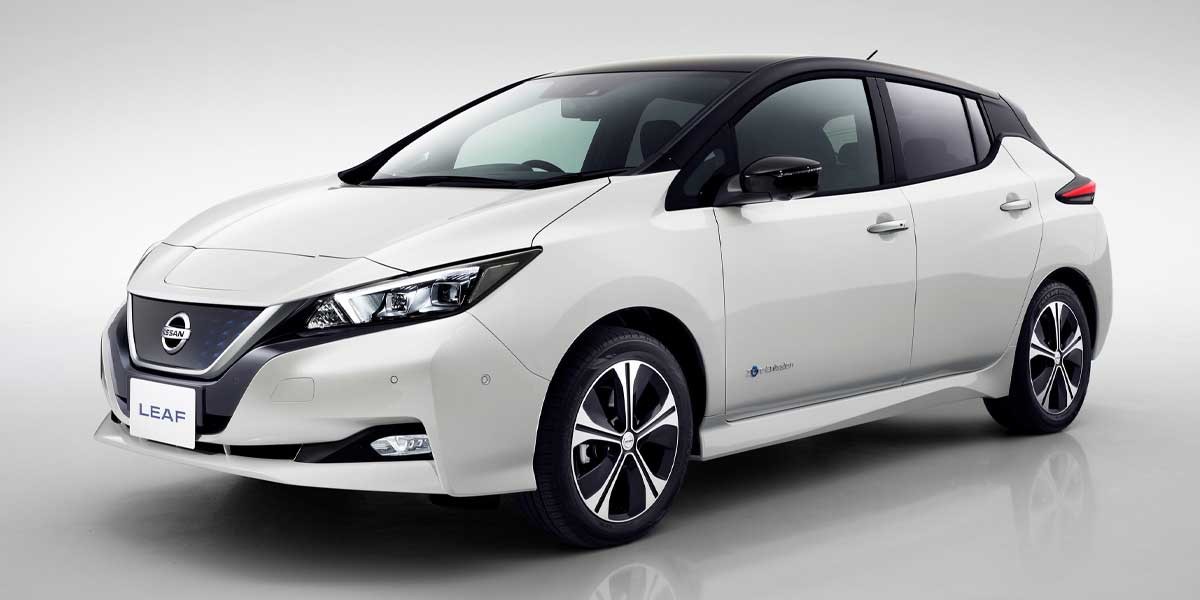NISSAN Leaf e+
NISSAN Leaf e+ is an electric car sporting a more powerful battery for extended range. Emphasizing eco-friendly performance, it offers brisk acceleration, ample interior space, and advanced tech for a seamless driving experience.
User Rating: 3 / 5 (19 votes)





Base Trim Price: $36550 USD *
| Body Type | hatchback |
| Model Year | 2019 |
| Manufactured in | Japan |
| Battery Capacity (kWh) | 62 |
| Electric range (km) | 385 |
| Max. Speed (km/h) | 160 |
| Acceleration 0-100 km/h (sec) | 7.3 |
| Power (h.p.) | 215 |
| Drive Type | FWD |
* Minimum price set for the base trim by the manufacturer
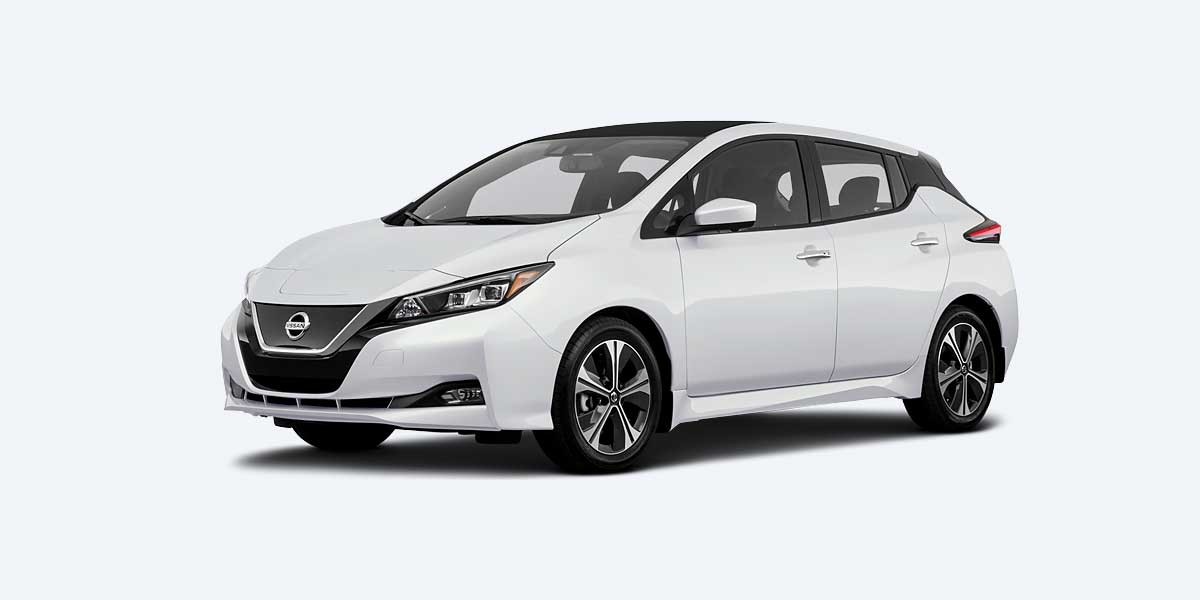
NISSAN Leaf e+ Review
Exploring the Nissan Leaf e+: A Leap Forward in Electric Drive
Summoning a fresh chapter in the electrification narrative, the Nissan Leaf e+ emerges as a significant leap from its predecessor, the Nissan Leaf 40 kWh. Crafted in the Land of the Rising Sun, this hatchback commences at a price point of $36,550. It encapsulates Nissan's dedication to meshing environmental consciousness with stellar performance.
Unveiling the Might & Agility of the Nissan Leaf e+
In the year of 2019, the world saw the unveiling of the Nissan Leaf e+, armed with a 160 kW engine that propels it to a spirited 215 horsepower. This enhancement in vigor - a hefty 45% ascent from its forerunner - results in a zest that’s nothing short of electrifying.
This surge in dynamism, married with an impressive torque of 340 Nm, culminates in the Leaf e+'s swift dash from 0 to 100 km/h in a mere 7.3 seconds. With a peak speed nudging 160 km/h - an ascent of 10% over its progenitor - the Leaf e+ is a vivid portrayal of electric mobility's potential.
Larger Battery, Loftier Range: The Nissan Leaf e+ Edge
At the heart of the Nissan Leaf e+'s advancements lies a substantial 62 kWh battery. This powerhouse, encapsulating a 55% uptick in capacity over the 40 kWh variant, boasts lithium-ion cells with a 25% surge in specific energy density. Such an upswing bestows the Leaf e+ with the ability to roam up to 385 km on a lone charge, underscoring its prowess for both urban jaunts and extensive voyages.
The Nissan Leaf e+: An Emblem of Modern Design and Solace
Externally, the Nissan Leaf e+ remains true to the distinctive aesthetic credo of the Leaf lineage, with its streamlined silhouettes and fluid aerodynamics. Within, it offers an enclave of spaciousness and comfort, fused with premium materials and cutting-edge gadgetry, ensuring a driving experience that's both indulgent and interconnected.
Epilogue: The Nissan Leaf e+ - Herald of Electric Mobility's New Epoch
The Nissan Leaf e+ stands not merely as a milestone but as a harbinger of Nissan's green tomorrow. It presents an exquisite equilibrium of potency, endurance, and economic feasibility, propelling electric motoring into realms of heightened accessibility and delight. For those in pursuit of an everyday chariot or a leisurely weekend conveyance, the Nissan Leaf e+ stands as a formidable competitor in the electric vehicle tapestry, beckoning to those yearning to tread into the dawn of motoring's electric age with Nissan.
Exterior and Interior photos of NISSAN Leaf e+
Watch the Video Overview
Full Specifications List:
| Power | 215 hp (160.3 kW) |
| 0 to 100 km/h | 7.3 sec (0 to 60 mph: 7.3 sec) |
| Range | 385 km (239 mi) |
| Max. Speed | 160 km/h (99.4 mph) |
| Battery Capacity | 62 kWh |
| Price | $36,550, €33,800, £29,450 |
F.A.Q. about NISSAN Leaf e+
What is the range of an electric vehicle on a single charge?
The NISSAN Leaf e+ offers a range of approximately 385 kilometers (239 miles) on a single charge.
How long does it take to fully charge an electric vehicle?
Charging time can vary based on the charger used, but typically, the NISSAN Leaf e+ takes about 11.5 hours to fully charge using a 240V home charger.
Are electric vehicles more expensive than gasoline cars?
Electric vehicles like the NISSAN Leaf e+ have a higher upfront cost, with a price of $36,550 (approximately €33,270 or £29,900), but they can save money on fuel and maintenance in the long run.
What is the battery capacity?
The NISSAN Leaf e+ has a battery capacity of 62 kWh.
What is the top speed?
The top speed of the NISSAN Leaf e+ is 160 km/h (99 mph).
What is total power?
The NISSAN Leaf e+ has a total power output of 215 horsepower (160 kW).
What is the acceleration like compared to other EVs?
The NISSAN Leaf e+ can accelerate from 0 to 100 km/h (0 to 62 mph) in 7.3 seconds, which is competitive among electric vehicles in its class.
Comparison:
NISSAN Leaf e+ is a standout amongst hatchbacks in its class, featuring an impressive blend of power, range, and affordability. Yet, how does it fare when pitted against stalwarts like the Chevy Bolt EV, Hyundai Kona Electric, Tesla Model 3 Standard Range Plus, and the BMW i3?
Range
Let’s talk kilometers—or miles if you’re from across the pond. The Nissan Leaf e+ boasts a range of 385 km (239 miles), putting it neck-and-neck with the Chevy Bolt EVs 416 km (259 miles). The Hyundai Kona Electric sides slightly ahead with 415 km (258 miles). However, the Tesla Model 3 Standard Range Plus blows them out of the water with an astonishing 423 km (263 miles), clearly the marathon runner here. Then theres the whimsical BMW i3, lagging with a rather pitiful 260 km (161 miles). Yes, you read that right.
Acceleration
When the lights turn green, the Nissan Leaf e+ catapults from 0 to 100 km/h in a respectable 7.3 seconds. Not bad for a family-friendly hatchback. The Chevy Bolt EV is slightly faster, clocking in at 6.5 seconds. Zooming ahead, the Hyundai Kona Electric mirrors the Bolt at 6.5 seconds, while the Tesla Model 3 Standard Range Plus sets the benchmark at a blistering 5.3 seconds. Lastly, the quirky but lovable BMW i3 pegs in at 7.2 seconds—faster than the Leaf, but only just.
Power
When it comes to sheer horsepower, the Nissan Leaf e+ flexes 215 ponies. Not bad in the hatchback world. The Chevy Bolt EV offers a meaty 200 h.p., and the Hyundai Kona Electric a vigorous 201 h.p.. The Tesla Model 3 Standard Range Plus easily outmuscles with its 283 h.p., making it the muscle car of the EV hatchback world. Meanwhile, the BMW i3, well, lets just say it dances gracefully with its 170 h.p.
Charging Time
The Nissan Leaf e+ isnt a slouch when it comes to charging either, taking around 11.5 hours for a full charge on AC (6 kW). The Chevy Bolt EV, at 10 hours on a Level 2 charger, undeniably edges ahead. The Hyundai Kona Electric takes around 9 hours and 35 minutes using a 7.2 kW AC charger. The Tesla Model 3 Standard Range Plus is the hare in this race, sprinting to a full charge in about 8.5 hours on a 240V source. Meanwhile, the BMW i3 finishes the race in roughly 6 hours on a 7.4 kW charger.
Price
Lets talk numbers. The Nissan Leaf e+ will set you back $36,550 (£26,600; €31,200). The Chevy Bolt EV is slightly friendlier on your wallet at $31,995 (£23,400; €27,300). The Hyundai Kona Electric prices out at around $37,390 (£27,200; €32,000), just a smidgen more than the Leaf e+. The rogue Tesla Model 3 Standard Range Plus tips the higher end at $39,990 (£29,100; €34,200). And finally, the classy yet compact BMW i3, which can be yours for $44,450 (£32,400; €38,000).

